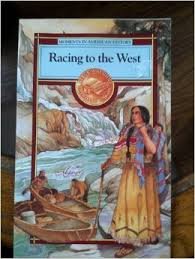-
The Union and the Civil War in American History
Mary E. Hull
Library Binding (Enslow Pub Inc, July 1, 2000)Examines the political and social factors of the time that led to the North's fight for unity among the states.
-
The Stock Market Crash of 1929
Scott Ingram
Paperback (Gareth Stevens Pub Secondary Lib, July 1, 2004)Chronicles the stock market crash of 1929 and the following Great Depression, examining the causes of the crash, the impact of both, and describing efforts to end the Great Depression and prevent it from happening again. W
W
-
Protests and Riots That Changed America
Joan Stoltman
Paperback (Lucent Books, Aug. 15, 2018)The right to peaceably assemble is one of the freedoms granted to Americans under the First Amendment. However, those peaceful protests sometimes erupt into violent riots. Both protests and riots have changed the course of American history, highlighting sources of unrest, inequality, and tension in the nation from its earliest days. Readers explore the fascinating history of these protests and riots, from the Whiskey Rebellion to the Women's March, through engaging main text featuring annotated historical and contemporary quotes. Details of these marches and demonstrations are made further memorable for readers through fact-filled sidebars, primary source images, maps, and a detailed timeline. Z
Z
-
The Terrorist Attacks of September, 11, 2001
Dale Anderson
Paperback (Gareth Stevens Pub Secondary Lib, July 1, 2003)Describes the causes, events, people, and legacy of the September 11 terrorist attacks. O
O
-
The Bay of Pigs
Howard Jones
Hardcover (Oxford University Press, Aug. 8, 2008)In The Bay of Pigs, Howard Jones provides a concise, incisive, and dramatic account of the disastrous attempt to overthrow Castro in April 1961. Drawing on recently declassified CIA documents, Jones deftly examines the train of missteps and self-deceptions that led to the invasion of U.S.-trained exiles at the Bay of Pigs. Ignoring warnings from the ambassador to Cuba, the Eisenhower administration put in motion an operation that proved nearly unstoppable even after the inauguration of John F. Kennedy. The CIA and Pentagon, meanwhile, both voiced confidence in the outcome of the invasion, especially after coordinating previous successful coups in Guatemala and Iran. And so the Kennedy administration launched the exile force toward its doom in Cochinos Bay on April 17, 1961. Jones gives a riveting account of the battle--and the confusion in the White House--before moving on to explore its implications. The Bay of Pigs, he writes, set the course of Kennedy's foreign policy. It was a humiliation for the administration that fueled fears of Communist domination and pushed Kennedy toward a hardline "cold warrior" stance. But at the same time, the failed attack left him deeply skeptical of CIA and military advisers and influenced his later actions during the Cuban missile crisis.
-
The Alaska Purchase
David K Fremon
Library Binding (Enslow Publishers, Sept. 1, 1999)-- Offers in-depth coverage of defining moments in American history.-- Provides exciting topics for research and reports.
-
Racing to the West
Melissa Stone
Library Binding (Heinemann/Raintree, April 1, 1990)Details the lives and achievements of seven Americans, including Daniel Boone, John Fremont, Sacajawea, and others P
P
-
Remember the Alamo
Teri Temple, Bob Temple
Library Binding (Rourke Pub Group, Jan. 31, 2007)Temple, Teri, Temple, Bob T
T
-
Fort Sumter: The Civil War Begins
Michael V. Uschan
Paperback (Gareth Stevens Pub Secondary Lib, July 1, 2004)Offers a history of Fort Sumter and the events leading up its bombardment and surrender in 1861. R
R
-
Patriots and Loyalists
Nathan Miloszewski
Library Binding (PowerKids Press, July 15, 2019)The American Revolutionary War pitted the colonial Patriots, who wanted independence from Great Britain and King George III, against the British Loyalists in North America. Some of the most well-known Patriots included future presidents of the United States, such as George Washington, Thomas Jefferson, and John Adams. It featured prominent Founding Fathers such as Benjamin Franklin, Samuel Adams, John Hancock, and others. This book explores why family, friends, and neighbors in the colonies became divided during the birth of a new a nation. Primary sources from the era and helpful images help readers make meaningful connections with the text. S
S
-
Slave Uprisings and Runaways: Fighting for Freedom and the Underground Railroad
Ann E. Eskridge, Henry Louis Gates
Library Binding (Enslow Pub Inc, Dec. 1, 2004)Chronicles the efforts of the abolitionists to free the slaves, the uprisings by slaves themselves, and the workings of the Underground Railroad.
-
The Siege of the Alamo
Janet Riehecky
Paperback (Gareth Stevens Pub Secondary Lib, July 1, 2002)Describes the causes, events, and aftermath of the battle between the Texans and the Mexicans at the Alamo on March 6, 1836. R
R